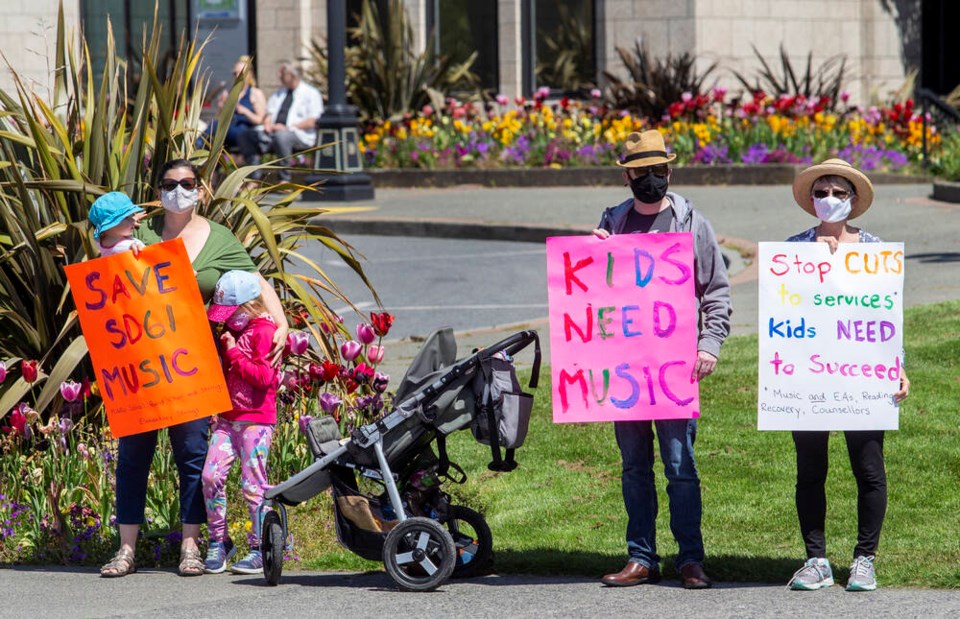Middle-school music and elementary-strings programming in the Greater Victoria School District will not be cut, after trustees voted for a number of other measures to cover a $3.8-million shortfall.
The $300.7-million budget for 2023-24, which includes operating costs, special-purpose money and capital funding, was balanced with the help of a 10 per cent across-the-board cut to all departments, said district superintendent Deb Whitten. The district is required by the province to submit a balanced budget.
Money was also saved via an ongoing district-wide spending freeze, reducing spending in communications and community engagement, and using some of the district’s contingency funds.
In addition, some extra money was raised through the district’s tuition-fee increase for international students.
“We’ll look into that further as we move forward,” Whitten said.
The trustees’ professional-development fund was reduced at the suggestion of trustee and board vice-chair Karin Kwan. And the school district will end its membership in the B.C. School Trustees Association to save $61,000, an idea put forward by trustee Derek Gagnon.
Trustee Angela Carmichael backed Gagnon, saying: “We really need to keep cuts away from the classroom.”
Board chair Nicole Duncan, the lone trustee to vote against ending the district’s BCSTA membership, said the association plays a valuable role in speaking to the provincial government on behalf of all school boards.
While the board was still short $18,000 to fully cover the middle-school program, trustees unanimously backed Kwan’s motion to use money from the district’s contingency fund for that purpose.
Aside from averting a proposed $226,450 cut to the middle-school music program, trustees — some of whom were elected on a promise to protect school music programs after years of cuts — voted to keep the elementary-strings program in place, albeit in a somewhat altered format.
Trustees had considered moving the elementary-strings program into a cost-saving hub model that would have seen students attend designated schools offering strings outside of regular school hours.
In the end, however, they gave unanimous support to Kwan’s motion to keep the program in schools where it is currently offered, with a pilot project to run in six elementary schools using teachers’ designated preparation time for music classes.
Some schools have already designated music education to coincide with preparation time — in-school time allotted to teachers for preparing their class work while another instructor takes their classes. Other programs that take place during that time include physical education and outdoor learning.
The model would be cheaper, because preparation time is already budgeted for as part of a teacher’s job, while separate music classes are above and beyond that cost.
Kwan said she will bring further information on the pilot to the next regular board meeting this month, including ways to evaluate it. “We want a large enough group where we can pilot this and see how it works,” she said.
Kwan, who became a trustee after chairing the community group Advocacy for Music in Schools, said she is very happy with the board’s decision to preserve music programs.
“I just didn’t want to see any more cuts [affecting] students.”
Last year’s budget deliberations led to a $209,000 cut to elementary strings, although donations from the community — including $125,000 from the Patrick McNally Foundation — helped save the program for the current school year.
One addition to the 2023-24 budget is funding for five daytime custodians, after 10 positions were cut in last year’s budget.
The school district has just over 20,000 students attending 27 elementary schools, 10 middle schools and seven secondary schools.
>>> To comment on this article, write a letter to the editor: [email protected]



